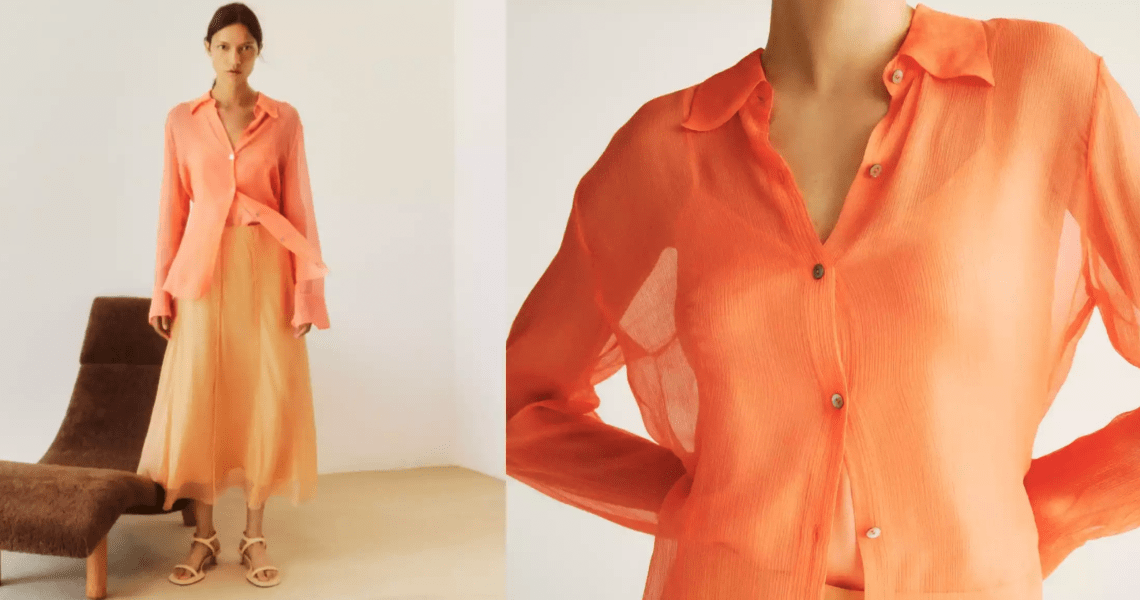Over the past three years, Authentic Brands Group has made a name for itself by buying up struggling retail brands like Forever 21 and Brooks Brothers, and instituting fairly miraculous turnarounds for them. In the last year alone, it acquired Ted Baker and Reebok.
But the company’s latest addition to the portfolio is structured a little differently. On Monday morning, ABG announced that it had struck a deal with the Vince Holding Corp., the parent company of the fashion brand Vince. Rather than buying Vince outright, ABG created a subsidiary brand called ABG Vince that is 75% owned by ABG and 25% owned by Vince Holding Corp. This joint operation holds the license to operate the Vince brand, while Vince Holding Corp. will continue to be an independent publicly traded brand.
As part of the deal, ABG paid Vince a little over $75 million and agreed to take a 25% stake in Vince’s parent company, Vince Holding Corp. Vince Holding Corp. is winding down its other owned brand, Rebecca Taylor, having sold off the last of its assets late last year.
The decision to create a joint partnership with Vince rather than buy the company outright is a practical one. Vince, unlike many of ABG’s other acquisitions, was not a failing business that could be bought for cheap. In its most recent earnings report, Vince showed full-year sales that had increased year-over-year by almost 11% to $357 million. Compare that to some of ABG’s other recent acquisitions, like Forever 21 and Brooks Brothers, both of which were at or near bankruptcy and were purchased for relatively affordable sums — just $80 million for Forever 21, for example.
Buying Vince outright would have cost significantly more than the $75 million ABG paid to operate ABG Vince. ABG also just completed a much larger deal: $1.3 billion to purchase Boardriders, the parent company of Billabong and Quiksilver.
Vince Holding Corp. is planning to use the $75 million in cash to pay off its $27 million in debt and keep the rest as working capital. In an email statement, Vince Holding Corp. CEO Jack Schwefel said the deal “will provide us the necessary capital to enhance our focus on driving margin expansion, our strategic growth initiatives including leveraging our enhanced e-commerce capabilities, expanding our international presence, growing our men’s business and selectively opening new retail doors in the U.S.”
A rep from ABG said executives were not offering interviews on the subject of the Vince deal, but in a statement from the company, ABG CEO Jamie Salter made it clear why Vince was such an important target for the company: It adds to ABG’s growing luxury business.
“The addition of Vince strategically expands Authentic’s portfolio of globally renowned luxe brands,” Salter said. “We see significant opportunities to expand Vince’s offerings to meet the growing demand for premium and luxury goods around the world.”
Many of ABG’s acquisitions have been so-called mall brands. Typically, these have been low-price-point brands like Aeropostale and Reebok. But after acquiring Brooks Brothers in 2020, ABG has made a concerted effort to pick up luxury brands — or at least something closer to luxury than to fast fashion — like the recently-acquired Ted Baker. Luxury brands have fared far better than lower-priced brands as the economy has worsened. For ABG, higher-end brands are helping to round out its portfolio to better withstand further economic pressures.
ABG also has an ongoing partnership with the Farfetch-owned New Guards Group to find luxury collaborators for ABG’s sneaker brand, Reebok, which led to the Reebok x Margiela collaboration last year.
Vince, with its prices reaching up to nearly $1,000 per piece at the highest end, further pushes ABG into premium-brand territory. ABG isn’t yet capable of competing in the luxury space with the preeminent American luxury holding group Capri — which owns Versace and Jimmy Choo, with a revenue of more than $4 billion annually — let alone the European giants like LVMH or Kering.
But ABG is a large company. It was last valued at more than $12 billion in 2022, when it was close to going public — it has since set that ambition aside until later this year or next. Its current competitors arguably include PVH Corp, whose portfolio similarly straddles the line between affordable brands like Warners and premium brands like Calvin Klein and Tommy Hilfiger. PVH sold off some of its brands, including Izod, to ABG in 2021.




